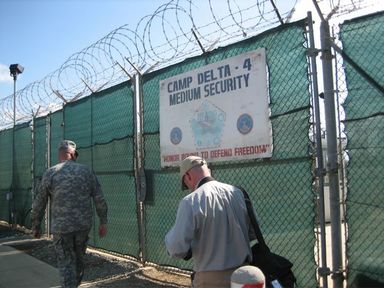Steve Coll on “Zero Dark Thirty” and torture for a good cause:
‘The first problem in assessing Zero Dark Thirty’s fealty to the facts about torture is that most of the record about the CIA’s interrogation program remains secret, including the formally sanctioned use of waterboarding and other brutal techniques between roughly 2002 and 2006. So does the full record of the CIA’s search for bin Laden after September 11. Documents obtained through the Freedom of Information Act by the American Civil Liberties Union and other groups, as well as work by investigative journalists such as Dana Priest of The Washington Post, Jane Mayer of The New Yorker, Mark Danner in this journal, and Adam Goldman of the Associated Press, have brought forward some details about the CIA’s interrogation program. Yet the record remains riddled with gaps and unanswered questions.
An estimate of how large the chasm is between what the public knows and what still-secret records describe can be drawn from accounts of a recently completed Senate Intelligence Committee staff report about the CIA program. The staff report is said to run to six thousand pages, based upon a review of about six million CIA documents and cables to and from “black sites” where just fewer than one hundred al-Qaeda suspects were held and where at least some of them were interrogated brutally, as depicted in Zero Dark Thirty. The Senate report remains highly classified, however, and is unlikely to be released in full anytime soon.
The result of such secrecy is that what is often described as America’s “debate” about the use of torture on al-Qaeda suspects largely consists of assertions, without evidence, by public officials with security clearances who have access to the classified record and who have expressed diametrically opposed opinions about what the record proves. Senator Dianne Feinstein, for example, has said that waterboarding and other harsh techniques were “not central” in developing the clues that led to Osama bin Laden’s hideout. Yet Michael Hayden, the final CIA director of the Bush administration, wrote last year that information gleaned from detainees who were “subjected to some form of enhanced interrogation” proved “crucial” to the search. The most thorough, independent account published on the bin Laden hunt to date—Manhunt, by the journalist Peter Bergen1 —mainly supports Feinstein’s view, but the CIA and other officials Bergen interviewed also asserted that some al-Qaeda detainees who were tortured provided relevant pieces of evidence.’
(…)
‘The film’s torture scenes depart from the historical record in two respects. Boal and Bigelow have conflated the pseudoscience of the CIA’s clinical, carefully reviewed “enhanced techniques” such as waterboarding with the out-of-control abuse of prisoners by low-level military police in places such as Abu Ghraib and Guantánamo. Dan puts Ammar in a dog collar and walks him around in an act of ritualized humiliation, but this was never an approved CIA technique.
More importantly, Zero Dark Thirty ignores what the record shows about how regulated, lawyerly, and bureaucratized—how banal—torture apparently became at some of the CIA black sites. A partially declassified report prepared by the CIA’s former inspector general, John Helgerson, indicates that physicians from the CIA’s Office of Medical Services attended interrogation sessions and took prisoners’ vital signs to assure they were healthy enough for the abuse to continue. Agency officers typed out numbingly detailed cables and memos about the enhanced interrogation sessions, as the available outline of the Senate Intelligence Committee’s classified investigation makes clear. Videotapes were recorded and logged. This CIA office routine might have been more shocking on screen than the clichéd physical abuse of prisoners that the filmmakers prefer.’
(Read the complete article here.)
Physicians attending the interrogator sessions – that would be an interesting moral debate.
I remember talking to physicians at Guantánamo Bay in the winter of 2007 about force-feeding prisoners.
One physician said that the detainees asked to be force-fed.
“Isn’t that a bit ironic?” I replied.
The physician answered that that was indeed a bit ironic.
Perhaps CIA physicians believe that detainees wanted waterboarding. It’s possible that in a few years one of these physicians will declare: “People are creatures of habit. These detainees were used to waterboarding. They kind of liked it. It gave meaning to their lives.”
